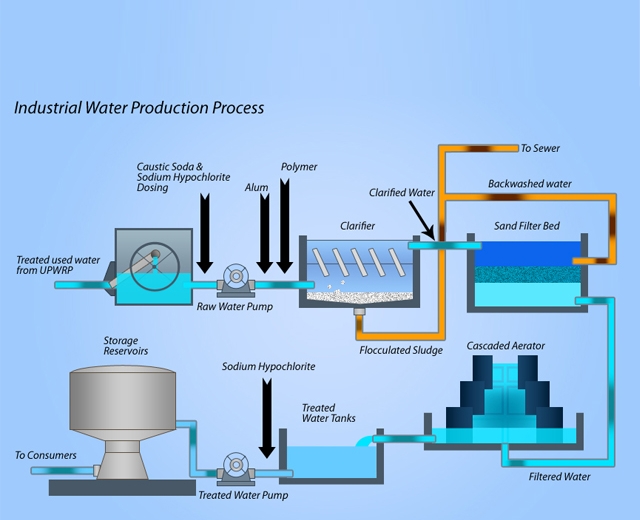Invest in a Water Purification System for Pure and Healthy Water
Why a Water Purification System Is Important for Tidy, Safe Water
Access to tidy, risk-free water is an essential human right and a foundation of public health and wellness. A water filtration system stands as a critical service to mitigate these risks, making sure that neighborhoods and individuals can access safe alcohol consumption water.
Importance of Clean Water
Accessibility to tidy water is a basic necessity for human wellness and well-being. Contaminated water can lead to severe wellness issues, consisting of gastrointestinal illnesses, cholera, and dysentery, particularly in susceptible populations such as children and the elderly.
Furthermore, clean water is crucial for sanitation and health techniques, which are vital in preventing the spread of contagious illness. Ample water supports appropriate sanitation facilities, advertising a healthier environment. Additionally, access to secure water affects socioeconomic factors, as it makes it possible for communities to take part in agricultural and industrial activities, ultimately contributing to financial advancement.
In many areas, the absence of clean water intensifies destitution and inequality, more preventing progress towards sustainable growth objectives. Ensuring access to clean water is not just a public health important however also a foundation for social equity and financial development. Initiatives to boost water quality and framework have far-ranging benefits, fostering healthier areas and enhancing high quality of life.

Typical Contaminants in Water
Making sure the accessibility of tidy water is undermined by different contaminants that can compromise its safety and top quality. The existence of microorganisms, such as infections, bacteria, and bloodsuckers, presents significant health and wellness dangers, particularly in areas lacking ample sanitation. These bacteria can bring about waterborne illness, resulting in extreme illness or perhaps death.
Chemical contaminants likewise offer an important concern. Hefty steels, consisting of mercury, lead, and arsenic, frequently go into water supplies with industrial discharges or corroded pipes. These materials can build up in the body in time, leading to long-lasting health concerns such as neurological damages and developing problems.
In addition, farming drainage presents chemicals and fertilizers into water systems, which can interrupt environments and negatively effect human wellness. Nitrates, frequently found in plant foods, can create major problems like methemoglobinemia, especially in babies.
Advantages of Water Purification Solutions
Recognizing the crucial demand for safe drinking water, water filtration systems provide a myriad of benefits that improve public health and wellness and environmental sustainability. Primarily, these systems properly get rid of unsafe contaminants, including microorganisms, viruses, hefty metals, and chemicals, making certain that the water taken in is devoid of toxins and virus. This reduction in contaminants considerably decreases the risk of waterborne conditions, promoting overall neighborhood health and wellness.
In addition to wellness benefits, water filtration systems add to environmental sustainability by lowering reliance on mineral water, which typically produces too much plastic waste. By using a filtration system, families can reduce their carbon impact and contribute to a much more lasting ecosystem. These systems can improve the preference and odor of water, making it a lot more tasty for day-to-day consumption.

Different Kinds Of Filtration Approaches

One common technique is reverse osmosis, which makes use of a semi-permeable membrane layer to separate water from dissolved pollutants and solids. This procedure properly minimizes impurities, including hefty steels and click for info chemicals. One more extensively used technique is ultraviolet (UV) disinfection, which utilizes UV light to neutralize germs and infections, providing them safe without making use of chemicals.
Turned on carbon filtration is one more popular strategy, making use of carbon to adsorb natural compounds, chlorine, and unpleasant odors, boosting taste and odor high quality. Distillation, a procedure that involves boiling water and condensing the steam, successfully gets rid of impurities and minerals but might need more power contrasted to various other approaches.
Ion exchange is frequently made use of to soften water by replacing calcium and magnesium ions with salt or potassium ions. Each technique has its advantages and limitations, making it important to comprehend their performances and efficiency in addressing particular water top quality problems - Water Purification System. Inevitably, choosing the ideal filtration technique is crucial for making sure safe and tidy alcohol consumption water
Choosing the Right System
Picking a proper water purification system requires cautious factor to consider of various variables, including the particular pollutants existing in the water supply, the volume of water needed, and the wanted filtration technique. It is necessary to conduct a water top quality examination to determine pollutants such as microorganisms, hefty metals, or chemical toxins. This info will certainly lead you in picking a system that effectively targets those details pollutants.
Following, examine your house's day-to-day water consumption to determine the system's capacity. Solutions are offered in different dimensions, from point-of-use filters for drinking water to whole-house systems that cleanse all check my blog water entering your home.
Additionally, think about the purification technique that finest fits your demands. As an example, reverse osmosis is very reliable for removing a vast array of pollutants, while UV filtration is exceptional for eliminating bacteria.
Final Thought
To conclude, the implementation of water purification systems is important for guaranteeing accessibility to safe and clean water. These systems properly eliminate harmful pollutants, thus minimizing the risk of waterborne diseases and improving public health. Furthermore, they add to more tips here environmental sustainability by decreasing dependence on bottled water. By recognizing the importance of tidy water and the advantages of different filtration approaches, neighborhoods can make educated choices to protect their wellness and promote socioeconomic stability.
Recognizing the critical need for risk-free alcohol consumption water, water filtration systems supply a myriad of advantages that enhance public wellness and ecological sustainability.In addition to wellness benefits, water filtration systems add to environmental sustainability by reducing dependence on bottled water, which commonly produces extreme plastic waste. Inevitably, the adoption of water purification systems is a positive action toward making certain clean, safe water for future generations while safeguarding public wellness and the atmosphere.
Picking a suitable water filtration system needs mindful consideration of numerous aspects, including the particular pollutants present in the water supply, the quantity of water required, and the preferred filtration method.In final thought, the execution of water filtration systems is essential for guaranteeing access to safe and clean water.